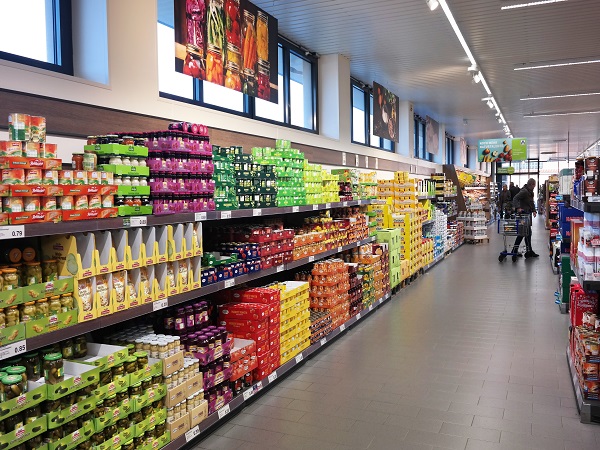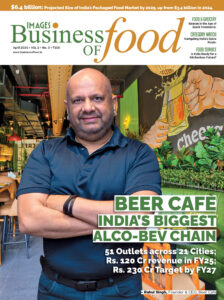Private labels have moved beyond being merely lower-priced alternatives to becoming significant contributors to the retail landscape. In India, private labels represent 4% of total retail sales. 70% of these private labels are found in food categories as compared to 30% in non-foods. They sell at a price at least 20% lower than brands in the modern format stores. Categories that have shown highest growth include bread, tissue papers, cleaners, and cakes.
According to NIQ data, private label food sales have increased 16% over the last two years, reaching $135.5 billion in March 2022. Efficient Consumer Response (ECR) warrants retailers to offer suitable products based on customers’ tastes and preferences, which change with store format and positioning.
In many cases, the limitation of current suppliers to offer the required merchandise leads to development of products by retailers. Some are sold under the manufacturer or distributor brands and some as private labels. Private label brands (also called ‘own label’, store brand or private label) are defined as a product line, which is owned, controlled, merchandised, and sold by a specific retailer, in its own stores. The retailer would develop the specifications for the merchandise and find a supplier or manufacturer. The responsibility for promoting the brand is solely on the retailer.
Retailers’ choice of introducing private labels is driven by reasons such as (a) They are priced 40-50 percent lower than manufacturer brands. They offer quality, style, and consistency. On a global basis, private label products are found to offer consumers an average discount of above 30% percent versus manufacturers.
In India, in some cases, the profits may be double those of the branded products. (b) Strong private labels boost store loyalty by creating a relationship based on the experience of the product and not just the shopping experience. (c) Retailers have more control over distribution, display, promotion, and quality of merchandise. (d) Management the inventory is easier in terms of volume and segmentation 2
Private labels also offer several advantages to producers. Smaller suppliers who do not have promotional capabilities can enter bigger stores at a lower cost. They can also get more shelf space in the store. Manufacturers often provide retailers greater visibility through advertising and promotional incentives.
Despite these advantages, the retailer must be cautious as significant investments are required to design merchandise, create customer awareness, and develop a favorable image for their private label brands. Only the large retailers can reap the economies of scale. Also, the sales staff may need additional training to sell private label brands.
Private label sales surge: Global and Indian trends
One of the biggest drivers of the growth of private label has been consumer reaction to inflation and recession. In the peak of inflation, value-based retailers’ sales jumped by 10%, capturing 42% of CPG sales.
Private label CPG sales accounted for 19% of total CPG sales worldwide. A global survey by ACNielsen of private labels has shown a steady growth in their value. Among regions, Europe (31.7%) has the highest share, followed by North America (14.4%), Asia Pacific (31%), Asia, Africa, and Latin America. The emerging markets show the fastest growth of about 40% percent, although the value share is only 7 percent.
Private label sales surge: Global and Indian trends
One of the biggest drivers of the growth of private label has been consumer reaction to inflation and recession. In the peak of inflation, value-based retailers’ sales jumped by 10%, capturing 42% of CPG sales.
Private label CPG sales accounted for 19% of total CPG sales worldwide. A global survey by ACNielsen of private labels has shown a steady growth in their value. Among regions, Europe (31.7%) has the highest share, followed by North America (14.4%), Asia Pacific (31%), Asia, Africa, and Latin America. The emerging markets show the fastest growth of about 40% percent, although the value share is only 7 percent.
Does private label mean only lower price and lower quality?
Although price-sensitive consumers are the main buyers of private labels, it is found that the influence of price is small and nonlinear. With small changes in prices or promotions by the national brands, the sales of private labels can swing easily. To hold the market share, retailers need to set prices adequately different from large mass market brands as customers judge private labels at varying price levels differently. In case of national brands and non-food private labels a higher price implies high product quality.
Does private label mean only lower price and lower quality?
Although price-sensitive consumers are the main buyers of private labels, it is found that the influence of price is small and nonlinear. With small changes in prices or promotions by the national brands, the sales of private labels can swing easily. To hold the market share, retailers need to set prices adequately different from large mass market brands as customers judge private labels at varying price levels differently. In case of national brands and non-food private labels a higher price implies high product quality. In this case, while product sales may generally drop with a price increase, a higher price could lead to increased market share and profitability.
In addition, instead of promotional pricing (high-low), everyday low pricing may result better results for traditional food retailers. Studies also indicate that a change in private label penetration and market share have a small impact on category profitability. Giving too much shelf space to private label can damage the overall category profitability.
A higher level of private label brand equity reduces the price competition from national brands. While perceived price is a powerful influencer, the role of store image is equally important, though less obvious. It is evident that in hypermarkets and discounters, customers expect low prices, whereas in a specialty store that sell own brands, price expectations are different.
Private labels enhance customer store loyalty and repeat purchases. Price consciousness is not the only factor influencing purchases. In grocery items it is primarily driven by the extrinsic cues rather than intrinsic characteristics of the product. While the tangible cues significantly discriminate between private label buyers and national brand buyers, it is found that all three intangible cues (financial, psychological, and functional) have significant effects on consumer quality perceptions. Perceived risk reduces brand value and purchase intentions. Customers’ willingness to buy newly introduced private labels is lowest for product groups associated with high social risk.
Laddering to achieve higher category profitability
Retailers can create higher value by bringing premiumness into their private labels. The offer of a portfolio of private label by a retailer should always include one that is premium besides one that is generic or economical and one that is standard as these occupy different positions in the minds of consumers. In many cases, premium private labels have grown faster.
These products possess uniqueness due to flavor, origin, or ingredients that national brands are not able to offer. While the standard private labels imitate leading brands and selling at a 20-30% lower price, premium private labels are targeted at the upper end of the customers of the store and offer quality similar or higher than the manufacturer brand. The relationship of the presence of private label with price and level of differentiation have been found to be non-monotonic showing a U-shape curve
It is advisable that retailers should plan their private labels based on their customers segments they service and their categories. Food and non-food categories present differing reception to private labels. Store image plays a significant role. Online and offline retail play warrants a different private label strategy.
Retailers need to create a ladder of product offering for customers to climb up. Stores with better browsing facility have more chances of introducing private labels. Use of social media and data-based targeted communication provide a much higher opportunity for retailers to bring private labels based on providing higher customer value which is not necessarily only lower price. In the end, retailers must behave like national brands for developing successful private labels and harassing higher category profits.
Conclusion
As the retail sector evolves, so does the private label landscape. Private labels have evolved into a powerful force in the retail world, contributing to a more diverse, competitive, and customer-centric industry. The landscape of private labels in the retail sector is dynamic and multifaceted, offering retailers opportunities to enhance their value proposition, customer loyalty, and category profitability.
Understanding the intricacies of private label strategies is essential as retailers seek to navigate and harness the potential of this evolving and influential segment of the industry. Retailers are encouraged to create a portfolio of private labels tailored to customer segments and categories.
A ladder of product offerings, encompassing premium, generic, and standard private labels, provides customers with an array of choices. Premium private labels, in particular, have exhibited notable growth, offering unique attributes that differentiate them from national brands.
To harness the full potential of private labels, retailers must carefully plan their offerings, leveraging their understanding of customer segments and categories. They should create a holistic customer experience, using store image, pricing strategies, and a compelling brand narrative that goes beyond the realm of price alone. By behaving more like national brands, retailers can navigate the complexities of private labels and ultimately achieve higher category profitability.




